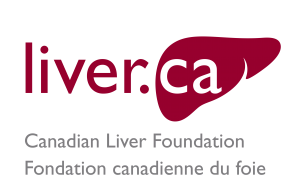Porphyria
Porphyria
In porphyria, the cells do not convert porphyrins to heme in a normal manner. Because of this, porphyrins are excreted in the urine and stool in excessive amounts. When present in very high levels, they cause the urine to have a distinct port wine colour.
Symptoms
The symptoms of porphyria fall into two major groups. Some patients have attacks in which the nerves of the body do not function properly and this results in abdominal pain and weakness. Other patients have problems with the parts of the skin that are exposed to the sun including pain and swelling of the skin or the formation of blisters.
The disease can appear in childhood, but the onset most frequently occurs between the ages of 20 and 40. The disease affects men less often than women, in whom attacks are related to the menstrual cycle. Long latent periods may separate these attacks which can be precipitated by drugs, infections such as hepatitis C, alcohol consumption and dieting.
Diagnosis
Proper diagnosis of porphyria depends on chemical studies of the blood, urine and stool. Since porphyria is a genetic disease, studies should also be done on children and blood relatives of affected individuals.
Treatment
Most treatments are targeted towards relieving symptoms of acute forms of porphyria, which include analgesics (e.g. opiates, aspirin) for pain, cardiovascular drugs (beta blockers) for high blood pressure or heart dysrhythmias, drugs to reduce anxiety (e.g. lorazepam), antiemetic drugs (e.g. promazine, chlorpromazine) to prevent vomiting, anticonvulsants (e.g. diazepam, clonazepam) for convulsions, phlebotomies (blood letting) for iron overload, and adequate intake of calories to reduce the intensity of acute attacks.
Support
National Help Line:
This support resource gives you and your loved one somewhere to turn for answers after diagnosis, helps you understand your disease, and provides you with the resources you need. You can call 1 (800) 563-5483 Monday to Friday from 9 AM to 5 PM EST.
The Peer Support Network:
This is a national network of people living with liver disease that have offered to share their experiences with others. It was developed by the Canadian Liver Foundation as a means to link Canadians like you who have a family member who has liver disease, who care for someone who suffers from liver disease, or who have been diagnosed with a liver disease, to talk about your concerns with a peer in a similar situation.
If you would like to be connected with a peer supporter in your area, or would like to join the peer support network, please call the National Help Line at 1 (800) 563-5483 Monday to Friday from 9 AM to 5 PM EST or email us.
Help us help you!
If you are not satisfied with the information you just read or any information on our website, please take a moment to send us your comments and suggestions on the type of content you would like to find on liver.ca. Please include the page you are commenting about in the subject line of your email.



